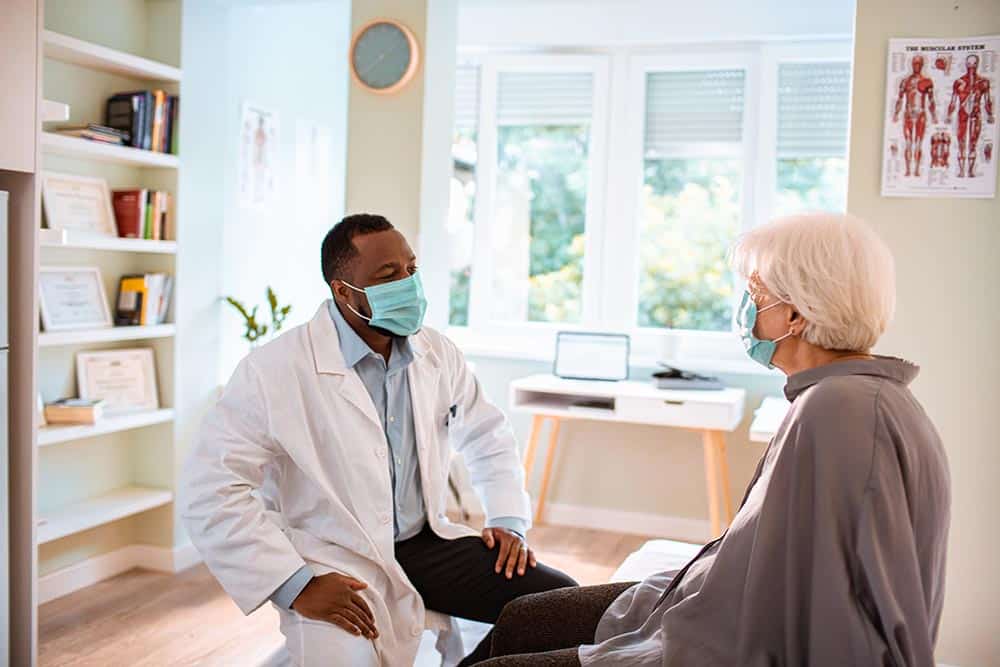Home » Health Education » Health Care Crisis: Preventive Care Drops Amid COVID-19 Pandemic

Health Care Crisis: Preventive Care Drops Amid COVID-19 Pandemic
When the coronavirus pandemic was hitting America in full force, people were encouraged to stay home unless absolutely necessary. Hospital visits were restricted and elective operations were put on hold. According to data from the nonprofit Health Care Cost Institute, that has rippled out and affected preventive health care visits as well.
COVID-19 has severely impacted preventive care appointments
Data collected from millions of insurance claims shows why Americans are visiting the doctor — and in this case, what they are avoiding.
Vaccinations saw about a 60% drop while colonoscopies plummeted to a nearly all-time low. Other preventive visits that saw steep drops include contraceptives like IUDs and cancer screenings like mammograms, the latter of which fell 77% at the height of the pandemic.
Doctors originally thought that the sharp drop in visits would be somewhat balanced out by a surge in appointments once stay-at-home orders were lifted. However, that hasn’t been the case. preventive procedure numbers have been going up, but only at a slow crawl. At this point, many experts fear it will be a long time before we see preventive care appointments at pre-pandemic levels.
Stress is compounding the problem
Stress has been linked to a huge number of health issues. Continuously elevated stress levels can increase a person’s risk of heart disease, weaken the immune system, increase blood pressure, affect the reproductive system, and cause severe headaches and migraines. In short, it may be one of the single biggest factors in determining a person’s overall health.
Unfortunately, sources of stress are everywhere. The most obvious of these is the COVID-19 pandemic, which has cost people financially, closed schools, and isolated people more than ever. Combine all of these together and stress levels are bound to rise, leading to a sharp uptick in cases of depression and deteriorating mental health in many populations.
In the U.S., the upcoming election is also providing many people with unavoidable stress. Political arguments are never pleasant, but this particular election has been especially divisive. Families that have differing political opinions can find themselves fractured under the additional strain. Then there is the anxiety that comes with the election itself. Many people are heavily invested in the outcome of the election, and just the possibility of an unfavorable result is enough to cause them distress.
The fact that this rise in stressors is happening at the same time as a steep decline in preventive care visits is especially concerning for health care professionals, who see it as a potential “perfect storm” of dangerous circumstances.
Why is preventive care so important?
While many people think of preventive care in terms of annual checkups and eye appointments, preventive tests can be literal lifesavers. There are many forms of cancer that don’t produce any symptoms until they are much more advanced and difficult to treat. Many people don’t exhibit any warning signs of a stroke until they have one. And 90% of the people who are prediabetic don’t even know it. This is why the drop in preventive care appointments is so concerning. Without these appointments, doctors are unable to catch health issues before they become more serious.
With such a large drop in screenings, will we see a spike in preventable illnesses and medical issues in the future? Only time will tell, but an increase in things like heart disease, cancer deaths, or rises in vaccinated illnesses like measles are certainly a possibility.
Your health is important. Don’t put it off.
Preventive care is the most important thing you can do to preserve and maintain your health. Don’t put off essential appointments just because the need doesn’t feel immediate. One test today can save you from severe consequences later.
If you want to get screened and assess your health, you can start by finding the Life Line Screening facility nearest you.
Learn more or schedule a screening today at lifelinescreening.com — or give us a call at 888.852.8378. We’d love to help.
Topics:
Carotid Artery